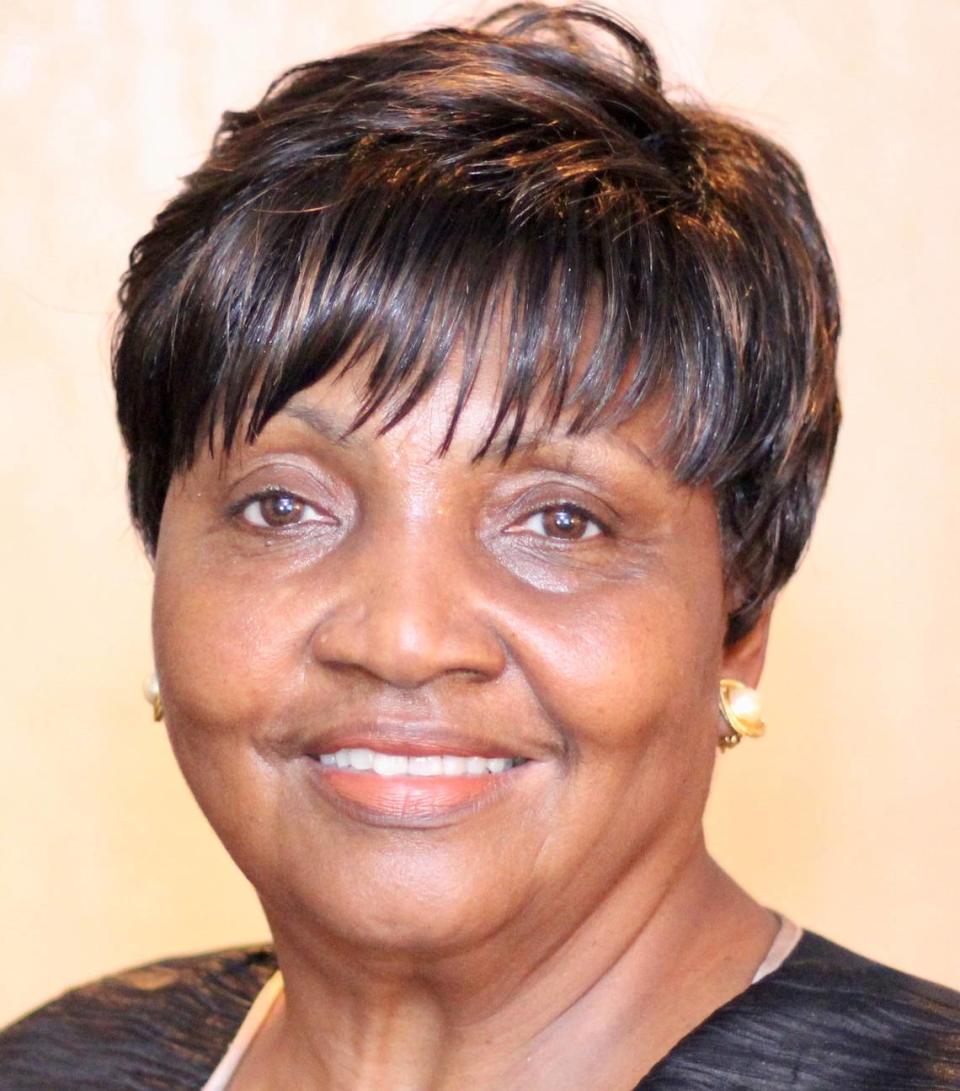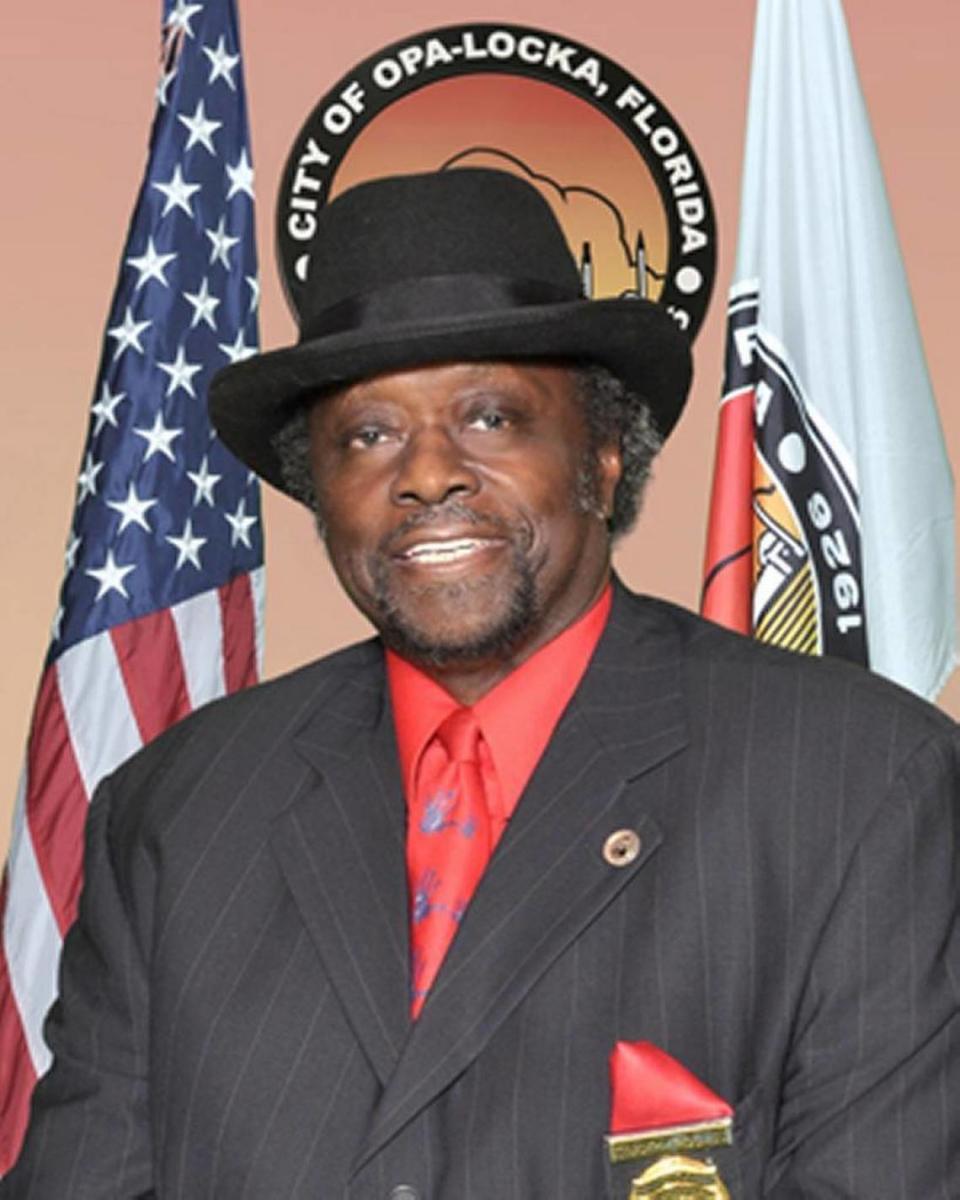Opa-locka voters will choose two city commissioners. Here are the candidates
Opa-locka is a city in transition as it emerges from the financial peril and scandal of recent years.
This election, voters will choose two commissioners to represent them on the five-person commission that plays a major role in how the city of about 18,000 plans to regain financial footing while addressing longstanding issues from rough roads to deteriorated utility pipes.
Eight candidates are running to fill the two commission seats. The two candidates with the highest number of votes in the Nov. 3 election will join the commission for four-year terms. The candidates include an incumbent, former city employees, a former commissioner, some previous candidates and a political newcomer.
The last year has been marked by steps toward stability compared to the period between 2016 and 2018, when the city entered a state of financial emergency and seven people associated with the city’s government were convicted following a corruption investigation led by the FBI.
By contrast, Opa-locka reached a milestone earlier this year: A state oversight board approved the city’s five-year financial plan. Multiple long-delayed audits of the city’s books have also been completed recently. Activists and reformers hope to continue turning the city around and achieving financial independence.
Good news for Opa-locka, which has been in a state of financial emergency and monitored by a fiscal oversight board since 2016: Florida's chief inspector general has approved the city's five-year plan. pic.twitter.com/w2xRTFU4Sm
— Aaron Leibowitz (@aaron_leib) September 29, 2020
Among the lingering needs: infrastructure upgrades, a resolution to high water bills for property owners and stability in the city’s police department.
The last two elections have ushered in political changes for the majority-Black city in Northwest Miami-Dade, with reform-minded candidates running, winning and pledging to steer Opa-locka toward a stable future.
This election, voters will choose two commissioners from a field of fresh faces and a few members of the old guard.
Veronica Williams
Williams, 45, is longtime educator who serves as an assistant principal at Miami Jackson Senior High, lifelong Opa-locka resident and first-time political candidate. She said she wants to restore trust and confidence in City Hall by focusing on immediate needs for taxpayers. These priorities include upgrading utility pipes and repairing deteriorated roads.
“My motto is people over politics,” she said.
She said she would bring a fresh voice to the commission with a vision for strengthening the community by bolstering community programs and connecting average citizens to the government, both for transparency and for a better public debate. From resolving issues for tenants dealing with slumlords to sponsoring community events to build civic pride, she thinks Opa-locka residents need practical help to rebuild trust in the local government.
“I’m all about service to the community,” she said.

Audrey Dominguez
Dominguez, 57, is an office manager at Miami Dade College and has lived in Opa-locka for more than 25 years. She unsuccessfully ran for commission in 2018.
She said public safety is key issue for residents, particularly in light of recent shakeups in the police department.
“Not having a chief of police at the moment makes it hard to feel at ease and safe,” she said. “I would support the city manager in the process of hiring a new chief of police that will follow all policies and procedures.”

Dorothy “Dottie” Johnson
Johnson, 69, is a retired U.S. Postal Service manager who served on the Opa-locka commission from 2002 to 2014. In 2018, she unsuccessfully ran for mayor, a year that political rivals unsuccessfully sued to have her removed from the ballot. She has served on the boards of numerous civic organizations, including the Historic Hampton House Trust and the public school system’s diversity equity and excellence advisory committee.
Johnson, a critic of some of her former colleagues, has said the city should be run like a business and should focus on building up its reserves, enhance community policing and support small businesses in the community. She said the city should “target policies that helps small local businesses compete and expand,” pushing businesses to flourish and bolster the city’s branding and image.
“Transparency and accountability is key to the business plan,” she said.

Timothy Holmes
Holmes, 77, spent more than two decades on the Opa-locka commission before retiring in November 2018.
“In 2018, candidates said Opa-locka needed changes on the commission. I had no problem with that,” he said. “But Opa-locka has not gotten better. Opa-locka is getting worse, in my opinion.”
He said the city should prioritize renovating City Hall, an example of Moorish architecture that has been shuttered for several years due to mold infestation. Such work has progressed recently. Restoration work started and stopped due to financing issues. This year, the city secured community redevelopment agency funding and negotiations with contractors began to resume work.
Holmes was also a proponent of the “saggy pants” ban that was recently repealed by the commission. The unusual and constitutionally questionable restriction was first enacted in 2007 and criticized for what civil liberties advocates described punishment for victimless behavior that would disproportionately affect Black men.
The former commissioner said he was disappointed with the repeal and did not understand why the current commission’s rationale.
“I don’t know why they would do that,” he said. “It brought Opa-locka a lot of respect.”

Christina Banks
Banks, 68, worked for more than 20 years in the city as an administrative assistant and ran unsuccessfully for commission in 2016 and 2018.
She did not respond to a Miami Herald candidate questionnaire. In a responses to a questionnaire from the League of Women Voters, Banks said she was running again “because of the lack of concern for the people of the City.”
“I bring with me 24 years of service working as an employee with training experience and skills in municipal government,” she said, adding that she has experience with working with the community’s parents, children and seniors.
She said she wants to create a program to unite the police with community.

Sherelean V. Bass
Bass, 52, is a minister who has lived in the city for 30 years. She is a current commissioner after winning election in 2018, serving two years to complete the term for the seat vacated by Matthew Pigatt when he was elected mayor.
She has worked as a community liaison at Dr. Robert B. Ingram Elementary School for the past 10 years. Bass did not respond to the Miami Herald questionnaire. In the League of Women Voters questionnaire, she emphasized the need for infrastructure investment in Opa-locka.
“Our roads and sewer system issues have been neglected for numerous years,” she said. “This major issue can be resolved by allocating the necessary funds in the budget, increasing manpower in our Public Works Department and posting a [request for proposals] for qualifying companies to take an assessment of our sewer system, roads, and streets.”
She said the city needs to bring in the right private firms to repair pipes, maintain pump stations and fill potholes.

John H. Taylor Jr.
Taylor, 31, is a youth pastor at his family church. He has established a mentoring program called Youth Nation, which provides students with counseling, tutoring, book bags and gifts and meals during the holidays.
He did not respond to election questionnaires from the Miami Herald and the League of Women Voters.
Taylor’s family has a legacy in Opa-locka — he is the son of former mayor Myra Taylor. Several members of his family have been arrested and charged with campaign violations and other illegal dealings.
His Facebook page says he is “a millennial with a vision to move our city from potential to reality.”
Randolph Aikens
Aikens, 64, is a former code enforcement supervisor who worked for the city for 40 years. Aikens was recently fired in circumstances that have generated controversy. City Manager John Pate wrote in termination letters that Aikens and three employees had worked together to place an improper fine on the property of the city’s assistant city manager, George Ellis.
Aikens told the Herald he believes his firing was retaliation for his alleged involvement, and he denied imposing the fine.
“I know they’re lying,” Aikens said. “It’s just another ploy to ruin me or stop me from winning the election.”
Aikens did not respond to questionnaires from the Herald and the League of Women Voters.


